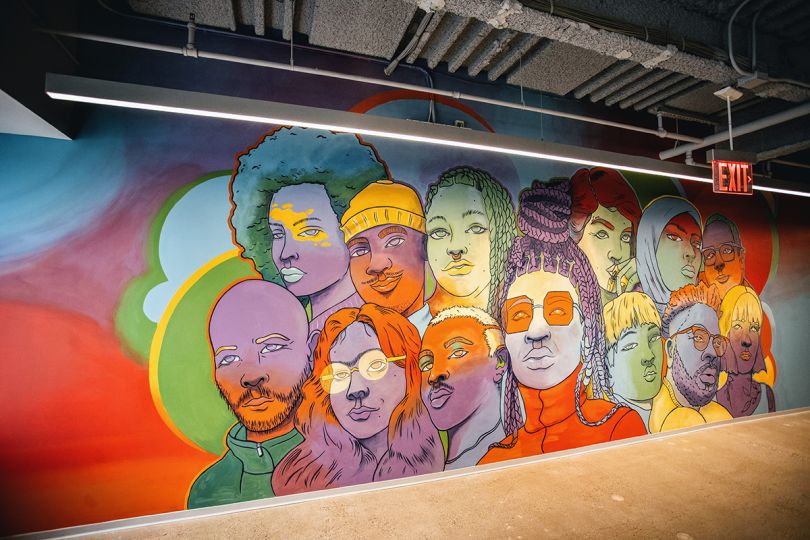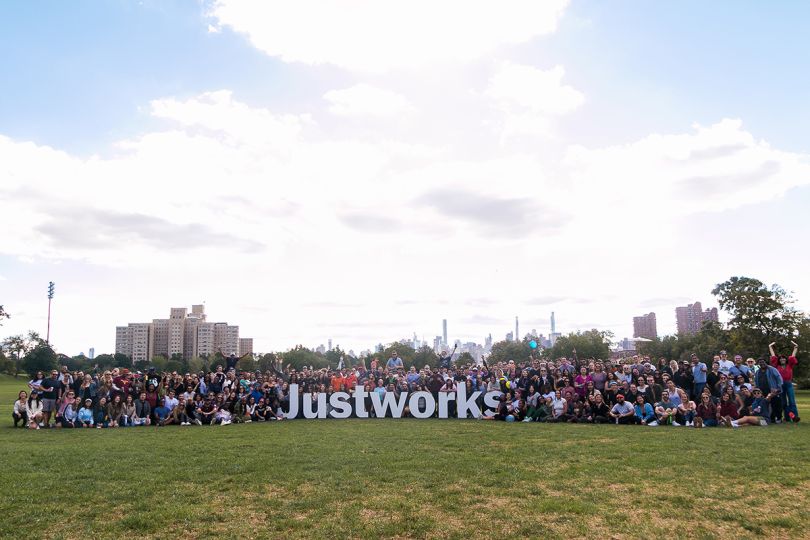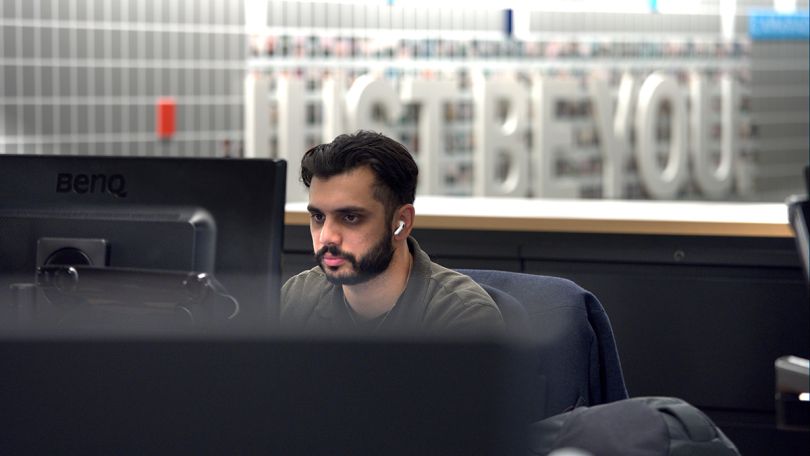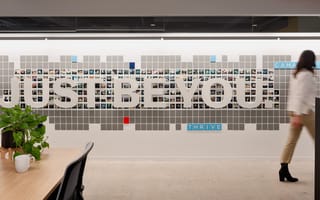At first glance, a company’s diversity, wellness and return-to-office programs might not share a ton of similarities. While they’re complementary components of the culture and employee experience, they’re simultaneously distinct entities that require individualized attention, focus and care.
And yet, for Allison Rutledge-Parisi, all three share a unifying thread.
“The throughline is one of deep attention to humanism. That’s what’s distinctive about the organization,” the senior vice president of Justworks’ people team said. “Isaac Oates, our CEO, talks a lot about the importance of kindness. Kindness feels different for different people. People have different love languages and different needs.”
For Rutledge-Parisi, this idea of kindness translates to an environment that caters to the individual, which she accomplishes through programs such as a return-to-office plan that relies on team agreements to determine what works best for individuals.
And for Vice President of DEI, Social Impact and Sustainability Yrthya Dinzey-Flores, it’s important to link the company’s diversity, equity, inclusion and belonging program to individual support. “Employees will stay in organizations because they find personal meaning in them that aligns with their values,” said Dinzey-Flores. “Employees who feel like they’re at an organization where no one values who they are as people is an organization that is not really identifying with the humanity that we so desire.”
When People Experience Manager Conor Harrington thinks about measures that resonate at the individual level, he focuses on a holistic approach facilitated by a four-pillar program that aims to to support mental wellness, physical health, social well-being and healthy work habits.
“We need to have the best of the best. We also need people to feel their best along the way,” Harrington said. “So it’s totally mission-critical that we can do all of these things in those four pillars, offering resources and initiating partnerships with really dynamic wellness vendors.”
Below, Built In caught up with these three Justwork leaders to learn how they play an integral role in developing a workplace that, as Rutledge-Parisi said, aims to imbue a “feeling of connection and belonging, even at our size and scale.”
About Justworks
The Present — and Future — of DEIB
Dinzey-Flores — who describes her leadership approach as being “very open and to ensure that I’m engaging people in a welcoming way” — is especially proud of the work she did to introduce “belonging” to the company’s DEI program: “The belonging piece aligns really well to our core values. We have this spirit of camaraderie, pride in transparency and integrity that is important for us to understand and be aligned to as employees of Justworks.”
What were some of your key goals for Justworks’ DEIB program upon joining?
Dinzey-Flores: We’re working very hard at placing diversity, equity, inclusion and belonging at the center of who we are as a company and how we operate. Moving forward, we’re looking at embedding our systems so it becomes a natural component of what we’re doing, not something that I’m working on as a siloed piece. For example, we’re looking at the manager experience in a different way when it comes to DEIB so that it’s not just robust education, but also constant support and continued prioritization of our commitment.
What does your DEIB roadmap entail?
Dinzey-Flores: We’re in the process of launching the roadmap we’ve developed. It’s been a four-year journey where we focused on foundational aspects in the first year. For example, we have employee resource groups — what are the other systems that should support them? In the second year we focused on progress. In that first piece we decided on the metrics we’re going to track. What do we need to put in place to accomplish them? The third phase is about accelerating the pace of the accomplishments that came through the foundational and progress pieces. And then the last piece is about excelling in this space and identifying how we assess how far we’ve come.

Can you tell us more about adding “belonging” to your DEI efforts?
Dinzey-Flores: A lot of conversation in this space centers around how you sustain the progress that you’ve made around diversifying your workforce. You can go through this period of achieving greater diversity, but if your organization isn’t focused on inclusion, all of those gains can fade away.
It’s a measure of how strong your culture is and how connected people feel to it. It is also important in terms of accomplishing systemic change. I see it as more than just something that employees feel — I also see it as a marker of how sustainable our practices will be over time. That’s why I thought belonging was important to add in: to express the importance of the social contract we create with employees.
Looking ahead, what excites you most about DEIB at Justworks?
Dinzey-Flores: I’m hoping that you and I will talk a year from now and we’ll be able to discuss how we’ve leveraged our metrics and dashboards to transform the organization, how we’ve embedded specific practices along the people journey, and some results in terms of how we’ve delivered on our anti-racism commitments, fostering more belonging and better representation among employees.
Striving to Be Well
A variety of resources comprise each pillar of the Just Be Well program: Mental health is bolstered through premium access to the Headspace app, access to Talkspace through a person’s first year at Justworks, live meditation on Wednesdays, twice-a-year “oxygen days” where team members get a $50 stipend for “whatever it is that their heart desires,” and an employee-curated therapist database. Partnerships with ClassPass and Gympass buoy physical health.
Meanwhile, quarterly workshops with The Financial Gym — plus individual sessions with the organization’s “financial trainers” — form the bedrock of social wellbeing. And efforts like blocking off time for deep work and access to ExecOnline courses aim to promote healthy work habits.
What gave rise to the Just Be Well program?
Harrington: The strategy was designed in fall 2020. It was born out of the need to support our employees in a time when the world was not doing so well. Leadership recognized we needed to do something to support our employees in a holistic way, because working from home and being in this new normal was challenging.
My colleagues designed a program focusing on four different pillars, and then I took over ownership, attempting to understand what was working and what wasn’t and how we could expand it. We want people to associate being a Justworker with wellness, so that it’s not just a few resources on a website or intranet, but it’s really woven into the fabric here.

Why is it important to take a holistic approach?
Harrington: I think we can all agree that wellness isn’t one-size-fits-all, by any means. We need to be focused on more than just mental or physical health. It’s not just about meditation every now and then. And it’s not just about going to the gym once or twice a week. It’s about all of those things together and how they complement each other.
What success stories have you seen?
Harrington: When we launched Gympass in September 2021, I was crossing my fingers. But I was pleasantly surprised that, within the first two weeks, the numbers were huge. More than 100 Justworkers signed up in the first three or four days. That was huge, and those numbers just continue to grow. The same thing is true for Headspace. We have hundreds of Justworkers who not only have accounts on Headspace, but they’re deeply engaged with it. And anecdotally, we’ve spoken to folks who have done 20-minute one-on-one coaching sessions with The Financial Gym, and they loved it so much.

Approaching the Office
At Justworks, teams use agreements to outline working and communications styles, as well as days that they’ll be together in the office. Importantly, these will vary from team to team — Rutledge-Parisi noted that the needs of the people team to be under one roof, for example, is different than what customer onboarding might require.
How has the return-to-office plan evolved?
Rutledge-Parisi: Justworks made these decisions based on a deep belief that teams operate best when they have strong trust and robust communication. No one’s worried about productivity. It’s about innovation, creativity, engagement and trust, as well as working together with tremendous camaraderie, which is one of our values.
Leadership really thought through what matters here and how we balance the needs of our individual employees with this value set we deeply believe in. We came up with the notion that an organization is only as strong as its teams. And teams need to have autonomy and mastery over how they relate with each other, within guidelines driven by company values. We asked teams to take two months to put together agreements that articulated all the ways they work together: how they use Slack, how they use email, what their working hours are, what they do when someone’s out, how they transfer knowledge and when they come together.
What’s the benefit of using team agreements?
Rutledge-Parisi: What an engineering team needs to do their work well is very different from marketing. And what the people team needs is different from legal. We gave each person room to think about how they work, what they do and how we need to respond to that. That was definitely a win.
Another really important part is continued flexibility. Clearly, the pandemic won’t quite let us go. We have continuously encouraged folks to step into their team agreements. We will do everything we can to make the workplace delightful for you to enter. But if someone can’t do it, there is flexibility.
Have there been any challenges to rolling this out?
Rutledge-Parisi: There’s a spectrum of responses to this notion that there’s value in being together, especially after a two-year-long, traumatic event. We have employees who’ve had a very hard time. The lesson for my team is that if you have a company of 900 people, you have 900 variations of feeling across a pretty wide bell curve, and you cannot dismiss either end of the curve. That doesn’t mean you give them exactly what they ask for, because you can’t always do that. But you can respect where they’re coming from, bring them along with no disrespect for their emotional response and try to find a way to help them navigate it. This is where flexibility and giving people time is really essential.
What’s the wider ripple effect of team agreements on the overall culture?
Rutledge-Parisi: Over time, this will sustain and deepen the distinctiveness of the camaraderie and openness of the culture at Justworks. It sets us up to be an organization that cares about the flourishing of each employee. It’s not a straight path. And there are many moments of thinking through how to do it better. But that is the long play. If you can hang onto, articulate and communicate a consistent set of values and principles, there’s tremendous support in that.








